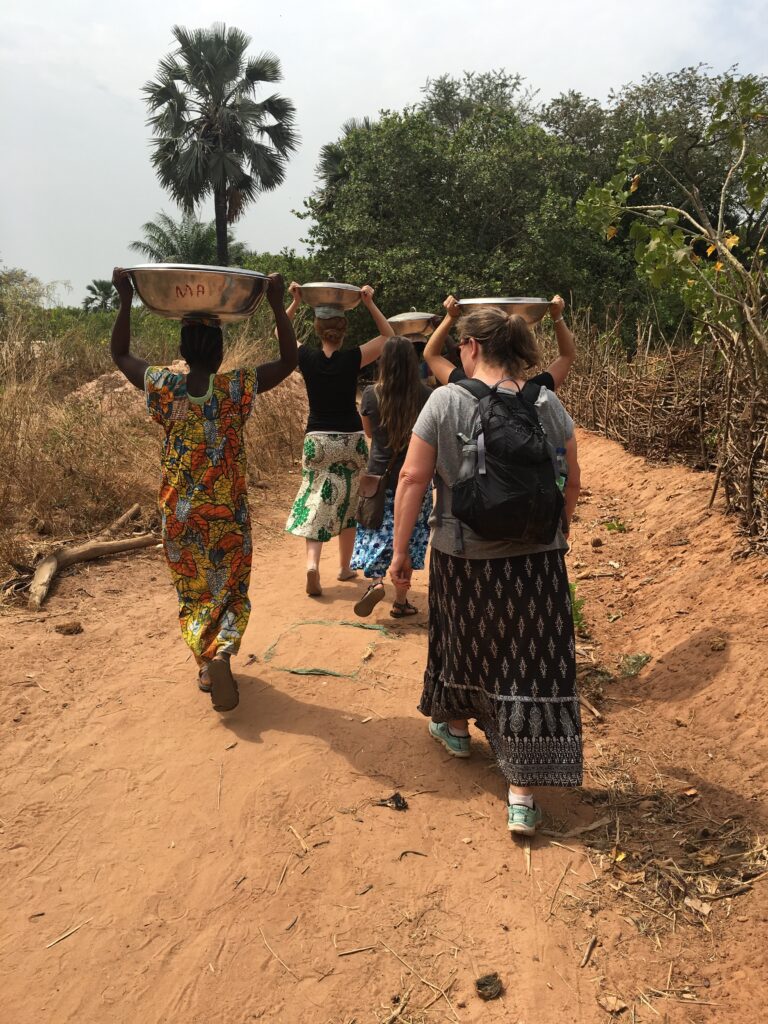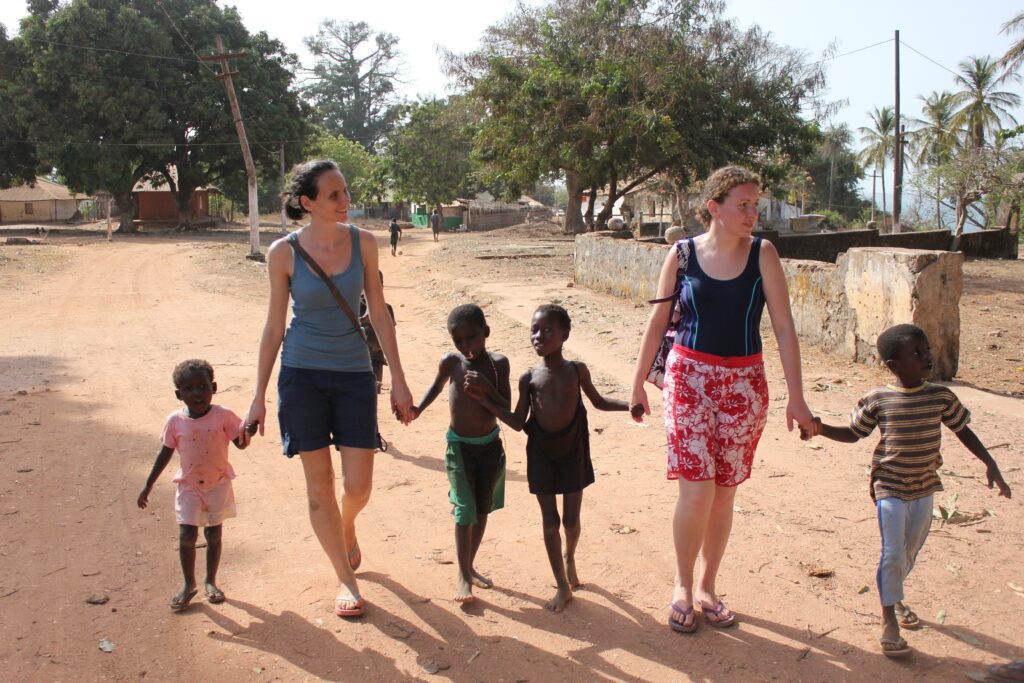How your missions team can be a blessing and not a burden when visiting Africa, or anywhere in the world.
With COVID-era travel restrictions all but gone, missions’ trips are back in full swing. This year, hundreds of thousands of church members will hop on planes to visit poor countries all around the world. And they will make lots of mistakes. Guaranteed.
Of course, these mistakes won’t be intentional. They’re to be expected.
Imagine if the situation was reversed. If someone who grew up in a rural village in Africa was suddenly dropped in a 5-star hotel in America, would they know how to act? No. They’d make a ton of embarrassing blunders.
(This actually happened to one of my African friends who visited the states for the first time. Having never traveled outside of West Africa, he landed in a $400-a-night hotel in Washington, D.C. After getting his room key, he stepped in the elevator and punched in his room number on the elevator panel, assuming the elevator would take him directly to his room.)

Westerners (meaning primarily Americans and Europeans) make the exact same kind of mistakes. Many times, we just simply have no idea how things are supposed to work in a foreign land, so we improvise and do our best to figure it out on the fly, often making a mess of things as we go.
So if you or your team has already made one of the faux pas listed below, they’re to be forgiven. But we still have an obligation to our best to avoid mistakes in the future.
The most important thing to remember is that short-term missionaries can easily become a burden on their local hosts without even realizing it (whether your hosts are nationals from the country you’re visiting, or foreign missionaries living in the country). So check in often with your hosts to make sure your team is helping more than hurting. Do that, and 90% of mistakes will be avoided.
Specifically, here are the top 3 mistakes I’ve seen Christians make on short-term missions’ trips. Because our team works in West Africa, the context of my examples are from that region. But the principles can be applied to most places short-term missionaries travel to.

1. Don’t give the shirt off your back.
Wait. What? I thought we’re supposed to be sacrificially generous! … Yes, that’s true. But only in the context of well-established, reciprocal relationships. Otherwise we create what’s known as a “giver-receiver dynamic” where the relationship is purely based on one person getting as much stuff as he possibly can from the other person. Not healthy at all.
We’ve had teams visit us who have given away their clothes, watches, and money to the people they meet during their trips, including the people our organization serves. One of our guiding principles, however, is that we never give away anything for free, so these kind of giveaways chip away at our long-term goals and damage the relationships we’re trying to establish with the people we serve.
Sometimes, even when we tell visitors not to give away anything, they still do it on the sly, thinking that since they’ve spent one week getting to know their new African friend, they know best how to help them.
I know it’s tempting: Maria is a wonderful person. I’ve seen her house. I’ve met her family. They have nothing. Her adorable 6-year-old daughter can’t go to school because Maria can’t afford school fees. All she’s asking for is $10. I could make a real difference. … I don’t know how else to say this: Don’t do it. Instead, check with your hosts and ask them what you could do to help her in the long-run.

2. Don’t make new pen pals.
After giving Maria $10 to pay for her daughter’s school fees, you figure out how to keep in touch with her on a messaging app (almost everyone in the world, no matter how poor, has a smart phone). After returning home, you exchange a few messages over the next several weeks. Then comes a request to wire money to pay for her daughter’s school uniform. Then for her uncle’s funeral expenses. Then for her brother’s wedding. After a while, you start to wonder whether all these needs are legitimate.
Welcome to a giver-receiver relationship.
This happens all the time. Since you’re not living in the same community as your new pen pal, you have no way of knowing if you’re truly helping, or just creating dependency. But it’s also very hard to say no when you’ve already established a line of communication. So it’s best to limit the friendship to the in-person interactions during your trip, and not make new digital pen pals.
3. Don’t assume your simple request to your host is so simple.
Visitor: I need to check my email several times each day, so how do I get data on my phone?
Host: OK. So we’ll need to take a two-hour detour from our schedule to travel to the telecomm company office, register your phone, buy a new SIM card, purchase data credit, and spend 30 minutes showing you how to set it up. Next time, could you please get an international data plan or just be content with spotty wi-fi for a week?
Visitor: How do we get fresh coffee for tomorrow morning?
Host: I’ll have to spend 30 minutes traveling to the one store in town where I think they sometimes have coffee for sale, but it’s probably closed for the afternoon. So that means I’ll have to go there this evening when it will re-open for a few hours and completely rearrange my plans for the day while at the same time trying to get all 10 of you settled in for your first night here. Wish me luck!
Visitor: I really don’t like seafood. Something else please.
Host: I’m sorry, this is literally the only food that this restaurant is serving today. It’s called the “plate of the day” because that’s all they’ve got today. If you really want, we can go find another restaurant, wait another 50 minutes for them to cook the food, and hope that you’re happy with what they serve.

Know that you don’t know
So there you have it: the top three mistakes for Christian missionaries to avoid on short-term missions’ trips to Africa, or anywhere in the world!
Again, the most important thing is to “know that you don’t know.” And as Western visitors, it’s not our fault that we don’t know everything, because we didn’t grow up in the country we’re visiting. Keep that at the top of your mind, and you and your team will be a blessing and not a burden!
Chris Collins is the Executive Director of West African Vocational Schools, a Christian nonprofit that equips West Africans with life-changing job skills.



